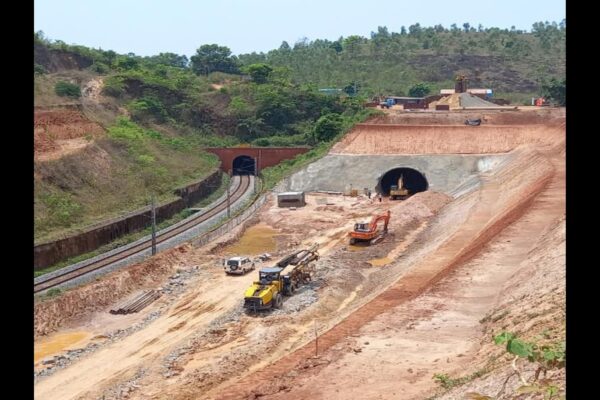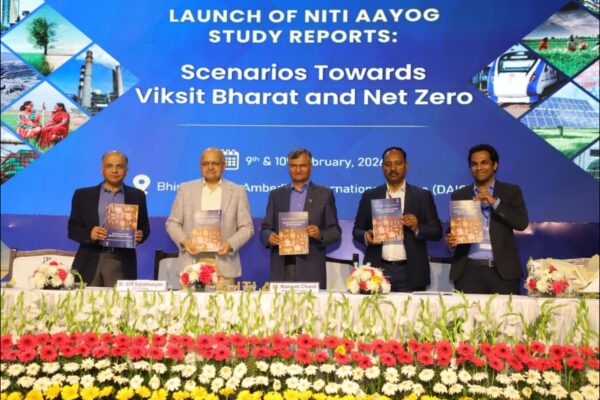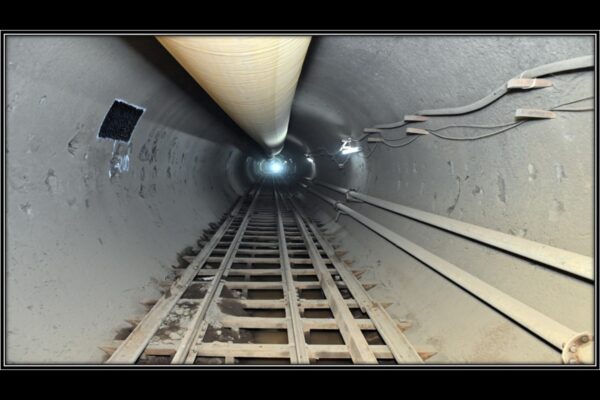Leveraging Project Collaboration Technology for Effective Infrastructure Project Management
By Chetan Bajpai, Director, Capital Novus
Nowadays, enterprises operate on projects across multiples domains at multiple locations having multiple stakeholders present in it. Without a robust project collaboration technology, enterprises face higher risks of grave security loopholes and process shortcomings seriously hampering the process integrity and information safety. Enterprises that mostly use legacy systems for communication face possible risk of mismanagement, unforeseen delays, human error, hacking, and unauthorized access to confidential information raising serious concerns over efficiency of project management. The risks of physical theft, digital breach, and leakage of sensitive or critical project information also looms large over enterprises.
With global economic scenarios changing exponentially and enterprises working in a multi-location and multi-stakeholder environment, it is imperative for the enterprises to leverage advanced technological solutions to operate seamlessly in this competitive environment. With global marketplace shrinking and enterprises having wide range of interests across different spheres of industry, enterprises must actively assimilate a robust technological framework to efficiently manage all of their infrastructure projects in a secure collaborative environment to reduce significant risks. It is essential that enterprises understand the importance of technological advancements to achieve their ulterior motive and thrive in this global digital marketplace.
Rapid adoption of a project collaboration technology will help enterprises to efficiently manage their entire infrastructure projects, secure their communication, expedite project execution, mitigate risks, and achieve success in this global competitive marketplace.
Challenges posed before infrastructure project management
Nowadays, enterprises operate on projects across multiples domains at multiple locations having multiple stakeholders present in it. Without a robust project collaboration technology, enterprises face higher risks of grave security loopholes and process shortcomings seriously hampering the process integrity and information safety. Enterprises that mostly use legacy systems for communication face possible risk of mismanagement, unforeseen delays, human error, hacking, and unauthorized access to confidential information raising serious concerns over efficiency of project management. The risks of physical theft, digital breach, and leakage of sensitive or critical project information also looms large over enterprises.
Moreover, while working on international infrastructure projects at disparate locations, the enterprises need to comply with various international regulatory compliance norms and processes to ensure strict adherence to regulations and rules. Enterprises handling numerous infrastructure projects have to deal with huge number of physical documents. Significant amount of time is spent in collection, organization and review of project critical documents that incurs significant costs as well. The costs towards hiring a physical space, security measures, and resources to ensure legal compliance further add burden on the enterprises.
Breaking the Silos!
The project collaboration technology is an innovative solution for enterprises involved in infrastructure project management. Using the collaborative and secure platform offered by the project collaboration technology, the company can establish a secure connection with all the entities involved enabling them to access information instantly from any location and any time overcoming any geographical constraints.
Secure online access to project critical documents at one central location alleviates the need for physical document collection, organization and storage that would have added additional burden towards costs on resources for storage, security, and hiring compliance and legal consultants.
Enterprises can significantly reduce the travel expenses incurred towards travelling of any third-party consultants as documents can be accessed from anywhere across the world.
Meet International Regulatory Compliance Requirements
As enterprises operate in more competitive global marketplace, they need to comply with various stringent regulatory compliance rules that vary from one location to another. The project collaboration technology offers comprehensive auditing capabilities that helps the corporates keep a detailed and insightful record of entire information sharing activities. The auditing capability provided by project collaboration technology ensures greater visibility into entire project management and expedites compliance process as requirements can be pinpointed faster. Without complying with various strict international regulatory compliance rules, the company can experience reduced ability to find a foothold in international markets.
Mr. Chetan Bajpai, Director at Capital Novus, who has headed the major infrastructure projects globally says, “I am quite convinced that a project collaboration technology clearly demarcates the workspace and the communication part. It literally secures the workspace data in real-time with its advanced security features and end-to-end encryption system. The fascinating part of the solution is that it eliminates the risk of human errors to a very great extent. It’s a technology that every project head and the business owner should have”. He further adds, “As we move in the era of multi-location, multi-stakeholders and faster projects in competitive environment, this technology can erase the human error factor and the silos within the organisation to bring everyone together on a collaborative project and focused on meaning results. The best part is that it makes the system accountable for data integrity and can be reached at any point of lifespan of project decided.”
Concerned about your confidential data?
The project collaboration technology solutions are strongly built to handle enterprise confidential data operating across multiple domains and keep it secured through multiple layers of protection. It adopts complex and highly advanced efficient security features to safeguard confidential and project critical data against potential online threats and data breaches. Advanced encryption standard like AES_256 ensures end-to-end encryption and is used to securely encrypt the documents and strongly ensure safety and security of critical documents by preventing unauthorized access or hacking. The sensitive client information can be kept secured and protected from unauthorized access or viewing that can have grave consequences and malign the brand image of the enterprise.
Secure your communication
In this information driven economy, it is very essential to safeguard critical information. Legacy communication channels are vulnerable to online threats, hacking, and data breaches that hampers the data integrity of confidential and critical data leading to leakage of crucial information. Project collaboration technology offers an inter-platform communication channel like email. The emailing capability is fully secured and employs complex encryption algorithms that ensures that the client information remains safe and secured. With this, all the communication between enterprises and different touch points happened within the platform precincts that greatly reduce possibility of critical information disclosure to outside elements. The Q&A capability also provides a flexible and efficient way for inter platform secured communication by way of question and answer facility on documents. Q&A feature allowed different entities associated with the project to easily post all their queries pertaining to the documents in the form of questions and company could respond to the queries in the form of answers.
Effective Due Diligence is Important
Enterprises managing varied infrastructure projects understand the importance of due diligence process. With enterprises dealing with projects worth millions of dollars, it is very important to carry out due diligence process to ensure that all the documents are kept ready for any eventual inquiry or litigation. Enterprises can ensure a comprehensive due diligence of project critical and confidential documents by experts that increases process transparency. Enterprises can save significant costs over due diligence as experts sitting across any geographical locations can securely access and review the document.
Conclusion
Rapid adoption of project collaboration technology by enterprises lets them to seamlessly manage varied infrastructure projects operating across different locations. Entire critical and confidential data can be kept secured in a collaborative environment providing end-to-end encryption. The project collaboration technology can efficiently bridge the gap between various involved entities through effective real-time collaboration and enhanced communication.

















